It seems only fitting that, after a banner year for Asian cinema in 2016, things would inevitably slow down. Outside of Okja, Bong Joon-ho’s cross-country allegorical adventure on Netflix, there weren’t too many new release films from name directors to anticipate or become excited for (at least, in the Australian calendar).
But that isn’t to say that 2017 was entirely disappointing. Instead, what the year gave to us were plenty of surprises from new voices in Asia.
Makoto Nagahisa started the year strong when his short film And So We Put Goldfish in the Pool won at Sundance Film Festival. Lee Hyun-ju’s Our Love Story offered a sincere portrait of coming-of-age and queer romance in South Korea (although a 2016 release in South Korea, Australia didn’t get it until earlier this year at Mardis Gras Film Festival as far as we know). Nattawut Poonpiriya’s true crime story Bad Genius was a runaway hit across Asia. And Mouly Surya’s Marlina the Murderer in Four Acts breathed new life into the Western, further solidifying the rise of modern Indonesian cinema.
These of course weren’t the only films that impressed, as you’ll soon see. So as we close out another year, we look back on some of the best titles across Asia that emerged in 2017 and also explore the ‘older’ titles that we discovered for the first time (or in some cases, re-visited!).

Hieu Chau’s Favourite New Discoveries
What are your favourite Asian films from 2017?
A lot of the 2017 releases I saw this year ended up being short films which was a huge change to my usual viewing habits. I adored Makoto Nagahisa’s fantastic short And So We Put Goldfish in the Pool (which you can view absolutely free on YouTube), a short that encapsulated so much of what I love to see in a film about young people and certainly possessed an energy that I couldn’t really find in any other film this year.
I also really enjoyed Memoria, a short film written and directed by Indonesia’s Kamila Andini which screened at the 2017 Melbourne International Film Festival. It’s the complete opposite of Nagahisa’s fun short but is nevertheless an engrossing experience as Andini lays bare the harrowing stories of sexual assault survivors in East Timor.
As for feature length films, Bad Genius was a huge surprise and it ended up being one of my favourite blockbusters of the year. After a bit of a slump, Sion Sono has gloriously found his bearings again with the incredible and surreal Antiporno (Ami Tomite is great in this film). And Kim Min-hee delivers perhaps my favourite overall performance in 2017 in Hong Sang-soo’s terrific On the Beach at Night Alone.
Salawaku also deserves a mention and I hope to see this gorgeous Indonesian road-trip drama available on-demand in some fashion for worldwide viewing. It’s a simple film but it tells its story so well and is greatly acted too. Yamato (California) is also worth talking about too. I think about this film from time to time and think filmmaker Daisuke Miyazaki has a very interesting voice.
Which older Asian films have you recently discovered this year?
This year was an interesting one for me as I made a concerted effort to watch only past Asian films when I was at home and nothing else. I saw Blue Spring for the first time which absolutely rocked me and I felt its depiction of delinquent young men mirrored that of so many people I knew growing up. It really got me thinking a lot and really stayed with me… Such a surprisingly moving film and perhaps the film I was most affected by this year. Thank you Toyoda!
I was also grateful to have finally caught up with Shunji Iwai’s latest, A Bride for Rip Van Winkle, and One Million Yen Girl where Aoi Yu simply knocks it out of the park with a terrific lead performance. Swing Girls was terrific too and it really wasn’t a surprise to see why it did so well in Japan at the time of its release. It’s such a fun feel-good underdog story with such a terrific young cast and is also hugely funny!
I was very impressed with Li Yu’s Buddha Mountain too and wish that she could go back to directing indies like this. That scene where Fan Bingbing and her two friends are travelling on the train, surrounded by China’s gorgeous scenery is so astounding.
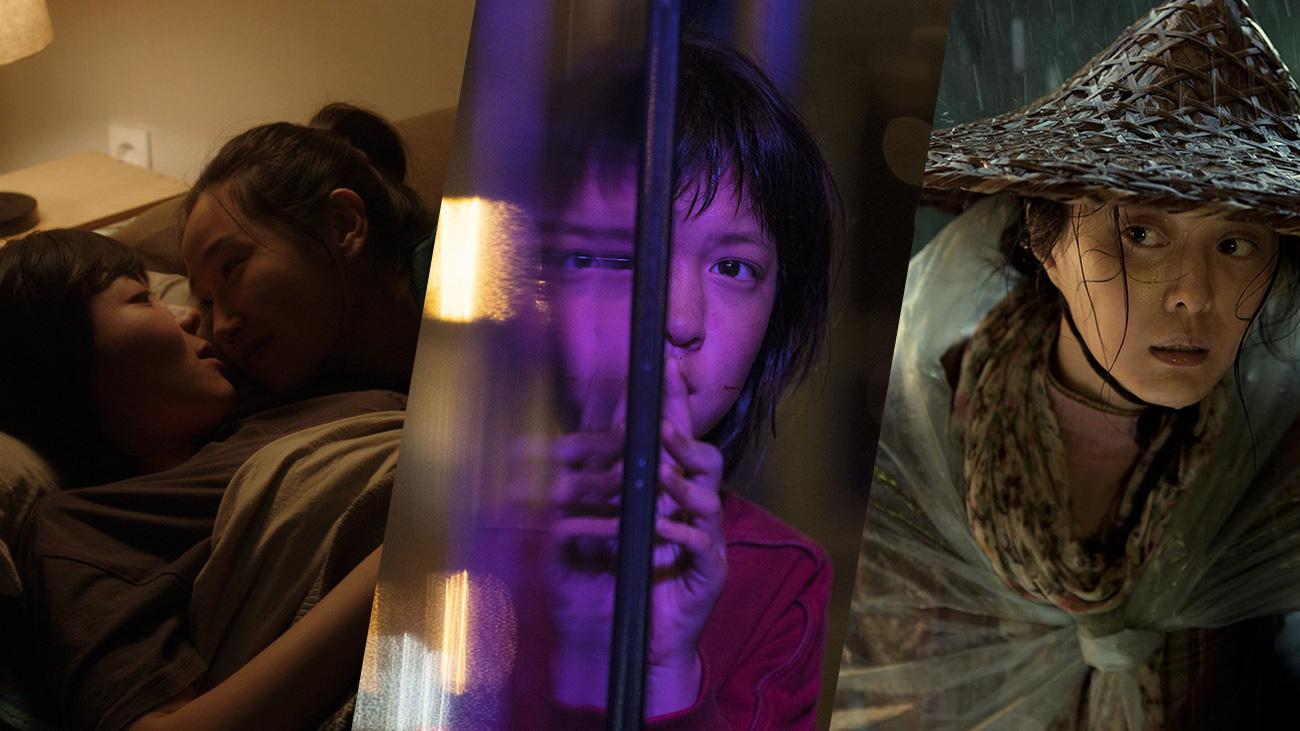
Natalie Ng’s Favourite New Discoveries
What are your favourite Asian films from 2017?
It was a bit of a crazy year for me personally, so I didn’t have much time to watch many new films this year. I had to be really selective about what I saw. A big theme of the films I enjoy revolve around female driven stories, but also hope, humanism and self-love.
Okja showed the world what South Korean film was capable of, and how it could have an international cast, multiple languages and a humanist message at its core. I loved director Bong’s attention to detail so much I wrote an entire piece on the costume design of the film.
Another highlight was Our Love Story, a small independent film about a university art student finding her footing in a new relationship with another girl. Such attention to detail towards intimacy in a relationship, both physically and emotionally, is rare.
Other films I really enjoyed were Daigo Matsui’s new film, Japanese Girls Never Die, as well as the documentary Tokyo Idols, an unrelenting dissection of the idol industry in Japan. Both films explore the ways in which pop culture feed off misogyny and control of young women.
Kyoto Animation has been doing some popular work in TV anime, and they really succeed in the feature length adaptation of the manga A Silent Voice. A high school set story, this is a sincere (even if occasionally overwrought) story about healing, redemption, mental health and self-love.
Which older Asian films have you recently discovered this year?
I missed out seeing some 2016 releases which I got to catch this year. The first of which was Shunji Iwai’s return to the big screen, A Bride for Rip Van Winkle. Although it appears to be a film to be about navigating relationships in the world of social media, it is far more about self-love than anything.
The other notable 2016 release I saw was I Am Not Madame Bovary. Fan Bing Bing does career-best work in this as a country woman who seeks justice and a divorce from her husband. A lot of actresses do this thing where they make themselves frumpy for a role, but it is usually so staged that it lacks believability. For superstar Fan, who is considered one of the most beautiful women in the world, it seems like this would be the case, as in earlier films she has had this problem of her star power overtaking her acting abilities. But as she goes from strength to strength, she completely transfixes in this role.
I saw two films this year starring Anna Tsuchiya that I absolutely loved. They were Sakuran and Kamikaze Girls. Sakuran was fashion photographer Mika Ninagawa’s first feature-length film. It’s an arresting, bold and completely modern take on the period drama following the life of an oiran (high-ranking courtesan). Kamikaze Girls was also a fun exploration of teenage girl friendship with wild aesthetics only Japanese film could pull off.
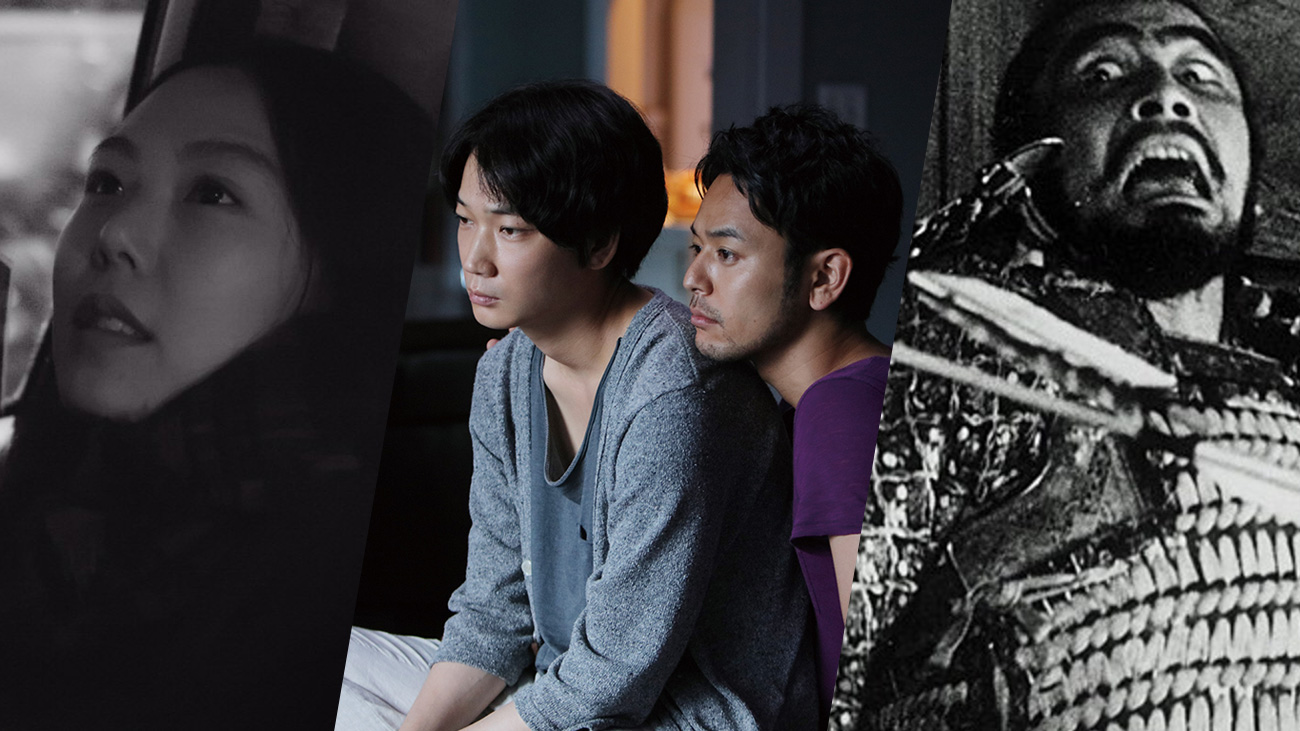
Brooke Heinz’s Favourite New Discoveries
What are your favourite Asian films from 2017?
In a year which delivered powerful female-led action films, a new social-commentary laden comedy from Bong Joon-ho, and an insightful documentary shining light on an issue personally close to me, even I am surprised that my film of the year is the slow-paced, conversation-heavy The Day After. Whilst Hong Sang-soo’s other much-lauded film On the Beach at Night Alone did very little for me, somehow The Day After was completely engaging despite using many of the same themes, actor, and stylistic techniques. Perhaps it is the reflective meta-commentary which could be interpreted given Hong and Kim Min-hee’s real life affair (Hong refutes that his films are based on his personal life). Perhaps it is the more focused nature and reduced cast of The Day After. Whatever it is, philosophical discussions in a monochrome palette have rarely been so engrossing.
By far the most emotional reaction I had to a film this year was Rage. Possibly one of the most emotionally indulgent murder mysteries I’ve seen, the actual who-done-it angle is far from its strongest aspect. Instead, a strings-laden soundtrack from Ryuichi Sakamoto, impeccable editing between three developed storylines, and powerful performances from a who’s who of Japanese actors is what makes Rage so stirring. However, despite the film’s technical excellence and emotional effect on me, Rage’s handling of rape and abuse is unacceptable and should not be overlooked due to its other strengths.
Honourable mention also goes to A Single Rider, a twist-filled story starring Korean superstars Lee Byung-hun and Ahn So-hee set against the very familiar backdrop of Sydney.
Which older Asian films have you recently discovered this year?
My list of older Asian films extends across several decades and contains a number of classics (many of which are likely shameful admissions given my interest in Asian cinema!). The earliest, and arguably most prestigious, is Akira Kurosawa’s Throne of Blood. Any and all of my praise for the Macbeth-retelling has surely been told hundreds of times before, but once again Throne of Blood proves the prestige surrounding Kurosawa’s name is fully deserved.
Moving from adaptation to (arguably) source material is Lady Snowblood. Heavily inspiring Kill Bill Vol. 1, the Japanese tale of vengeance has action and a sense of energy Quentin Tarantino can only imagine. Another Japanese film known for its strong female characters and brutal action is Studio Ghibli’s Princess Mononoke, which I caught for the first time during its limited release in cinemas this year. Princess Mononoke carries a more mature tone than the more popular Spirited Away, refusing to shy away from violence and morally complex characters. Case in point is ‘antagonist’ Lady Eboshi – a matriarch who simultaneously destroys the environment and its spiritual inhabitants, whilst also genuinely caring about her people and providing opportunities for those outcast by society.
My final discovery continues the trend of complex women with last year’s The Truth Beneath. Co-written by Park Chan-wook and directed by Lee Kyoung-mi, The Truth Beneath will feel similar to many other revenge films associated with Park — filled with violence, rage, and of course plot twists. But what sets this film apart is the powerhouse performance of lead Son Ye-jin as the mother of a missing daughter. Fiercely protective and hell-bent on finding who caused her daughter’s disappearance, Son delivers one of the best female performances in a Korean thriller (perhaps even Korean cinema) in recent years.
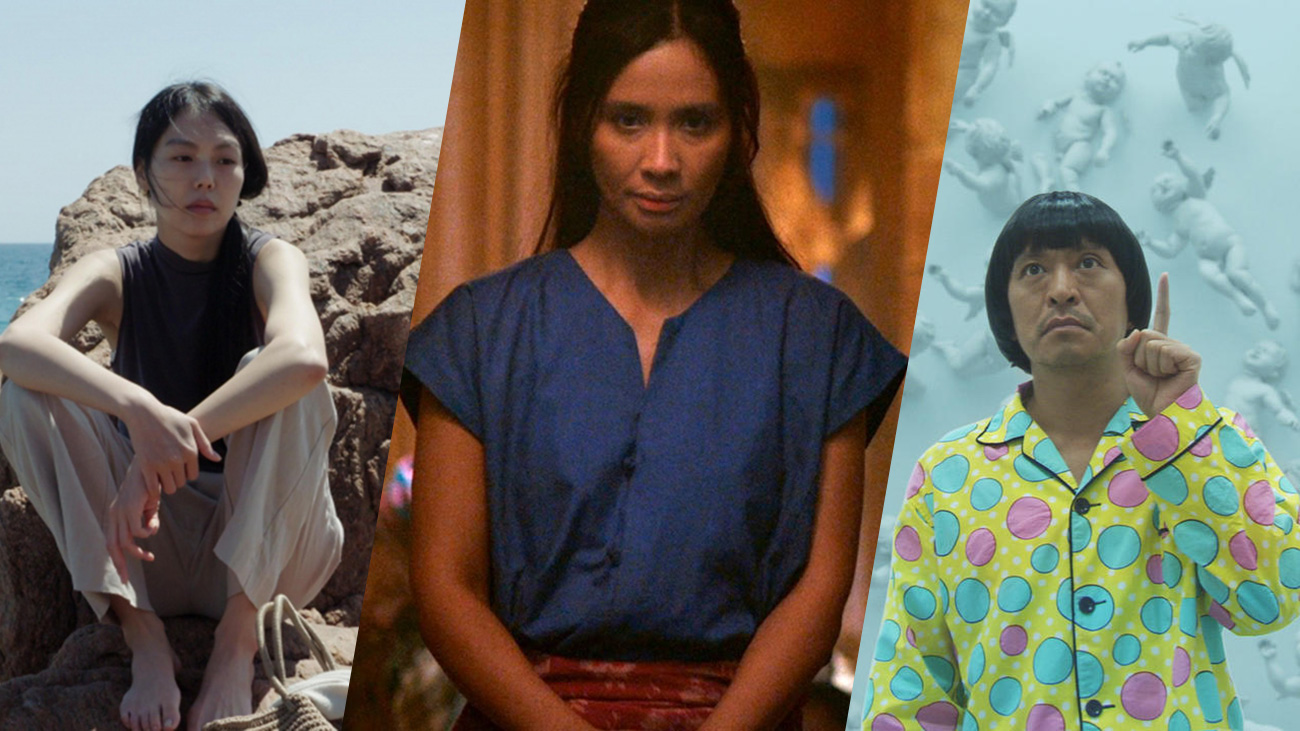
Hayley Inch’s Favourite New Discoveries
What are your favourite Asian films from 2017?
If the Asian cinema I saw this year had a trend, it was in dishing up extremely unlikely bedfellows in the one package, and delivering them in such a way it made you sit back on your heels, even if you foolishly felt like you knew what to anticipate.
An Indonesian, feminist, rape revenge western. It seems like a bizarre mash, but after seeing Mouly Surya’s Marlina the Murderer in Four Acts, it’s astonishing that such a thing has never been attempted before, let alone not become a whole sub-genre. Surya’s accomplished, daring and pin-point filmmaking is a masterclass of invention and composition.
Bong Joon-ho continued bridging Korean and Western filmic sensibilities with Okja, a film that seemed in so many ways to capture the despair and anger coursing through so much 2017 discourse, particularly in its complete disgust of late-capitalism, industry and mass consumption. The greatest superhero of the year didn’t appear in a Marvel or DC joint: it was An Seo-hyun as Mija, a little girl determined to save her best friend from the gaping maw of heedless human want.
My fave and yours Hong Sang-soo had a bumper year, and my two favourites of his latest offerings showed the now clearly emerging two sides of his filmmaking – the airy Claire’s Camera, which despite it’s sunny surface offered several queasy points of contention for the soul, and On the Beach at Night Alone, an utterly uncompromising work that lay the director’s own flaws and regrets completely bare. Whichever Hong we encounter these days, he is firing on all cylinders and surprising fans and detractors alike.
Even Takeshi Miike’s 100th feature, a mind-blowing number for a director still in his fifties, managed to surprise, with Blade of the Immortal presenting almost a zen experience of sword-fighting bloodshed; truly mayhem and mass slaughter has never been so relaxing to watch.
There was still room for completely enjoyable fluff however, and my 2017 comfort watch (first viewed on a plane, the height of comfort watching!) was Wai Man Yip’s Cook Up a Storm. Two chefs set up competing restaurants across the street from each other and also wind up challenging each other in a prestigious cooking competition. You know, as I did, exactly how this is going to turn out at every turn, but it’s no less sweet.
Which older Asian films have you recently discovered this year?
I was stoked to finally watch all of Kinji Kukasaku’s Battles Without Honour and Humanity series of yakuza films, a sprawling epic that has influenced countless gangster films and holds claim to possessing one of the most iconic theme songs in film history.
A film that COMPLETELY shifted how I fundamentally view cinema was Hitoshi Matsumoto’s Symbol, which I don’t even want to TRY to begin describing (just that it is a surreal mindfuck of the most glorious proportions). If every time you press a button after seeing it and you don’t also imagine *that tone* chiming out, I don’t even want to KNOW.
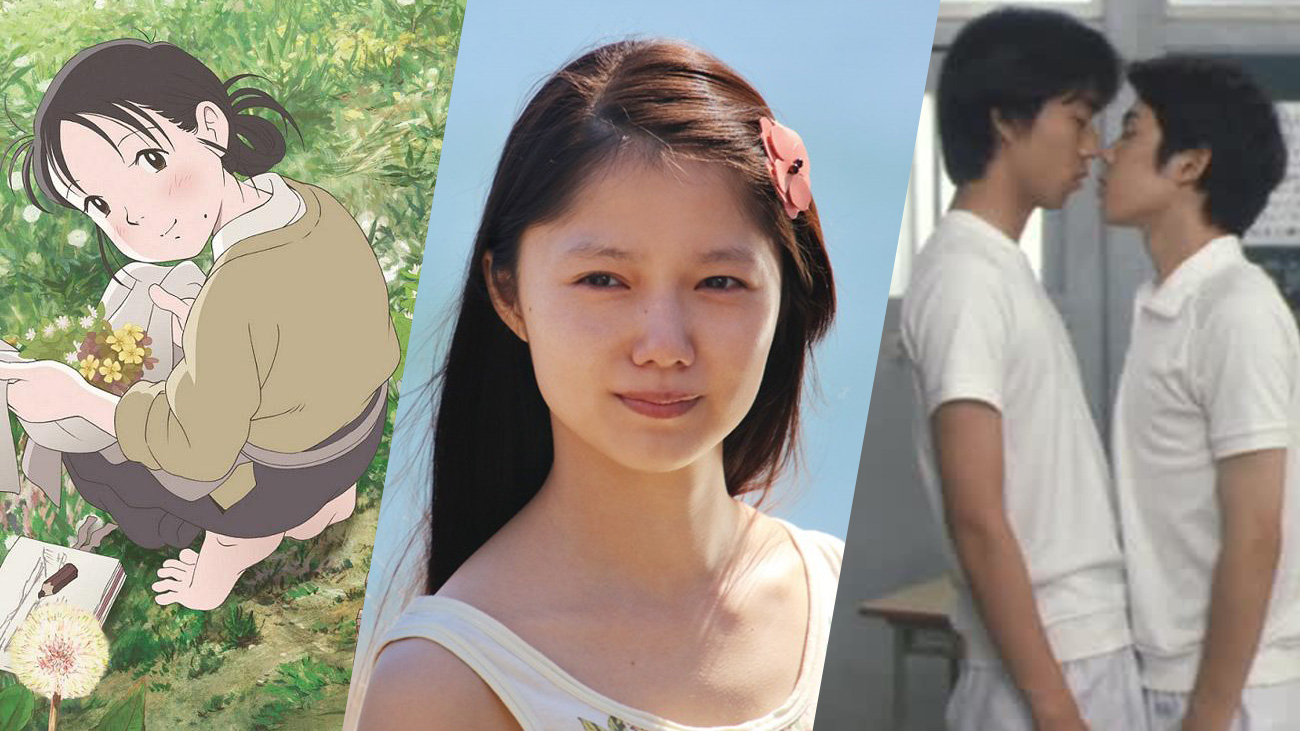
Aidan Djabarov’s Favourite New Discoveries
What are your favourite Asian films from 2017?
Among all the films I saw this year, my heart aches when I think of one: In This Corner of the World. The beautiful storytelling and animation made this film impactful and profound. It’s truly an example of why animated films should be thought of with as much esteem as live-action films. Many war films are also centred around soldiers and men, but this story about a civilian woman was as devastating to watch as your typical war film.
The biggest and most delightful surprise I had this year was Rage. When you put together a great ensemble cast and tell an interconnected story, there’s a lot that can go wrong but the storytelling was exquisite in this film. I found myself weeping through the last ten minutes based on the strength of the performances on screen and the movie’s underlying message. Trust is such a fragile thing, and difficult to build in a relationship. To deprive yourself of love and happiness because of the inability to trust, is one of life’s greatest tragedies. I found that to be the message of this movie, which on the outside paints itself as a murder-mystery, but has a strong emotional core.
Which older Asian films have you recently discovered this year?
There’s so many to choose from! Each year I do my best to catch-up on older Asian films I haven’t seen yet. This year, I strived to watch more female stories in general, and came across quite a few Asian gems this way. Bounce Ko Gals, Sakuran, and Kamikaze Girls were my favourites from this journey.
Blue Spring is a film I watched to discover more of Ryûhei Matsuda and I just really enjoyed the overall feel and energy of the film. It was like a punk song come to life. I’m strangely fascinated by stories about schoolboys acting like complete sociopaths and this fit the bill. I’m also a sucker for stories of unrequited love and watched Like Grains of Sand off of a friend’s recommendation and was so blown away by how much I loved it, especially having never heard of it before.
Finally, I have to call out The Castle of Sand – which for all intents and purposes is a melodrama and has been underrated for that reason but gripped me the whole way through and delivered an absolutely magnetic ending sequence that I will never forget. While I liked the film as a whole, I am so grateful for the existence of those last twenty minutes
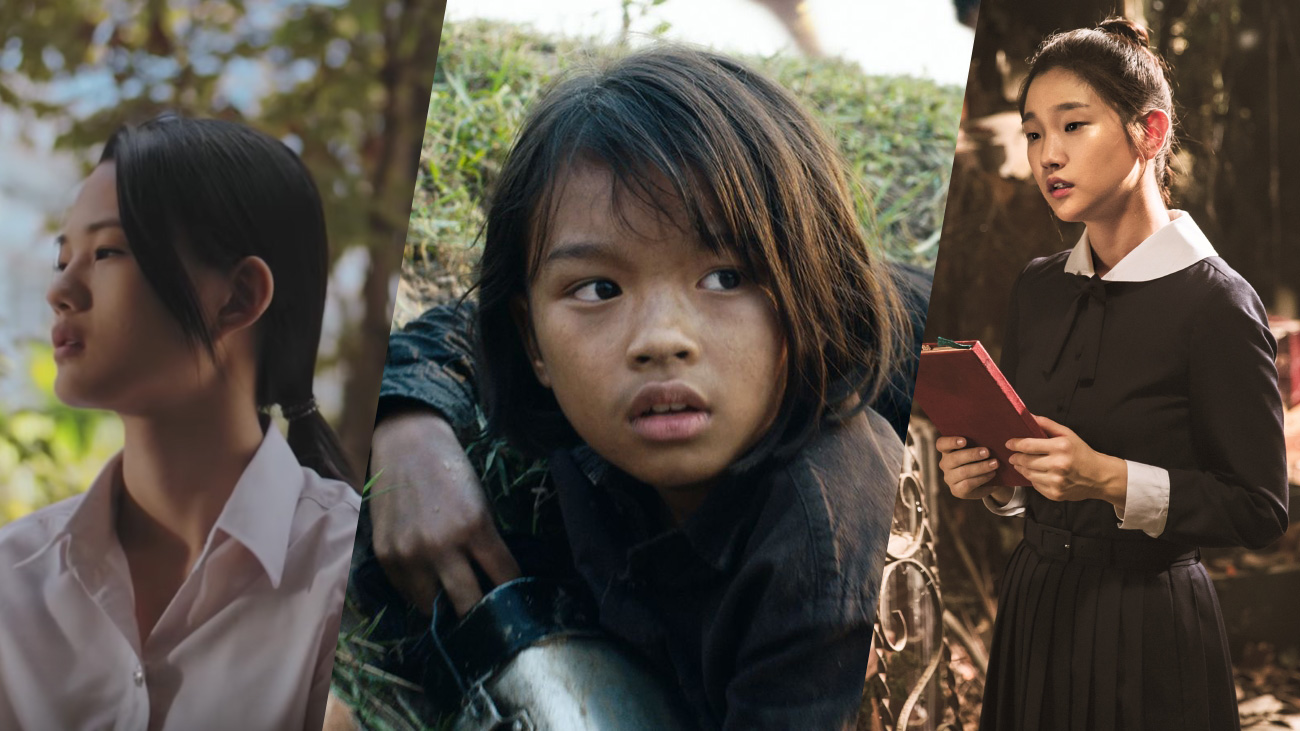
Theodora Vatubua’s Favourite New Discoveries
What are your favourite Asian films from 2017?
This year, my favourite Asian films were the ones that surprised me. First They Killed My Father is one that comes to mind for Asian cinema from 2017. Aside from its story, which was based on true events, it was the beautiful cinematography for this Cambodian movie that struck me. The direction Angeline Jolie takes where she keeps the film grounded through Loung’s perspective is what I believe created the magic of keeping viewers emotionally involved throughout the film. It stayed with me for days after viewing it.
By The Time It Gets Dark also surprised me. I’ve not seen any arthouse films, so it isn’t surprising that this one comes to mind for Asian films of 2017. While it isn’t my ‘favourite’, it is a film I think about from time to time. Watching it the first time, it confused me but the pull to understand it made me want to watch it again and piece together the metaphors Anocha Suwichakornpong orchestrates in her film. It came across as artistically disorientating and always kept me guessing — you think you know what her intentions are and then at other times you don’t.
Which older Asian films have you recently discovered this year?
Sadly, I haven’t had time to check out many older Asian films this year except on Netflix. The older movies I’ve encountered recently have been films within the last two years.
The Silenced reintroduced me to actress Park Bo-young. The first time I had seen her act was in the Korean drama Oh My Ghost. I enjoyed this mystery-thriller and on-screen friendship between characters between Ju-ran and Yeon-duk (Park So-dam). While the ending lacked a bit, it was the build-up of the story along with the Gothic vibe of the setting that I felt was executed so well.
I finally got around to watching The Assassin also which proved to be eerily and emotionally enthralling film. From the beautiful cinematography, the mise-en-scène and that flightless fight choreography, the film held my attention right from the beginning with its black and white scenes to the remainder of its squared aspect ratio.
My Annoying Brother was another film I recently discovered that took me by surprise. What looked like a black comedy suddenly did a complete 180 and ended up being a tear-jerker about two brothers re-connecting. While I wasn’t surprised by Do Kyung-soo’s stellar performance, it was Cho Jung-Suk that truly shined in this film.
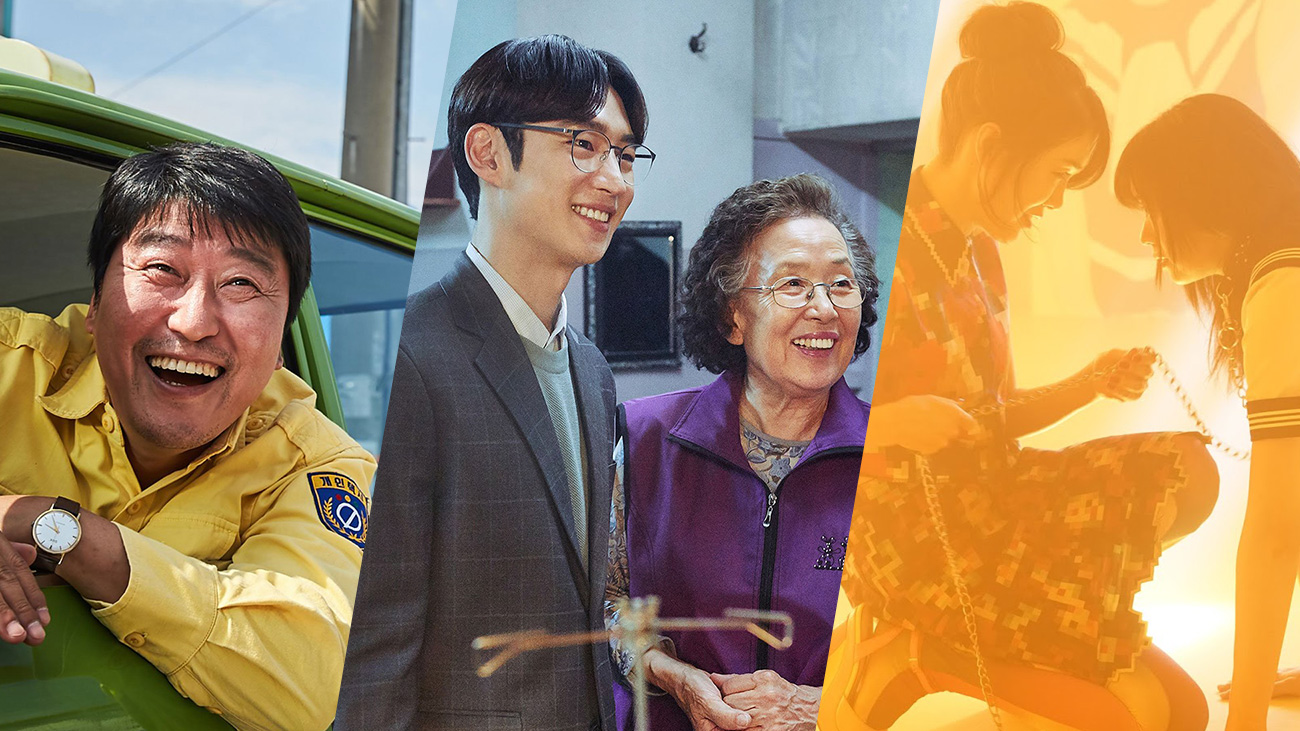
Matthew Rooke’s Favourite New Discoveries
What are your favourite Asian films from 2017?
Taxi Driver (dir. Jang Hun): A glimpse into the turmoil and bloodshed that was the birth of democracy in South Korea. Civilian demonstrations in Gwangju prompt a government crackdown with lethal force. A taxi driver from Seoul and a journalist from Germany form an unlikely alliance that manage to get the story out to the rest of the world.
I Can Speak, dir. Kim Hyun-Seok: This is two films in one but what the first half has in screwball comedy, the second half matches in raw emotion. An elderly woman desperate to learn English so she can recount to the world her years as a comfort woman for the Japanese Army during WWII.
Both of these films shed light onto contentious and difficult periods in recent Korean history and although knowledge of these events gives depth to the films it is by no means a pre-requisite.
Okja (dir. Bong Joon-ho): For the director, Bong Jong-ho, adding another notch to an amazing filmography belt. For the disruption caused by its funding and distribution and the ensuing debates. For a rollicking, confronting and oh so relevant specimen of cinema. For an animated leading role that navigates uncanny valley with poise and grace.
Cinema Highlight: Seeing three new Hong Sang-soo films in the span of 24 hours at MIFF 2017.
Which older Asian films have you recently discovered this year?
Not that super old being that it released last year but this year I saw Antiporno on the big screen for the first time at the 2017 edition of Japanese Film Festival – Australia.
It’s a celebration of the Roman Porno and a pink re-boot of all things lush, vivid, confronting and taboo. The cast are all women, the crew are all men. Kyoko and Noriko switch roles when the cameras cut and a dead sister tickles the ivory whilst smiling from the corner. A stylistic bending of identity, creativity madness and the politics of sex.
What are some of your favourite films this year? What films blew you away or left a huge impression on you? Was it an older film or a new one? We’re keen to know what you thought of the year that was for Asian cinema in 2017 and which Asian films you’ve finally caught up on so let us know in the comments.
